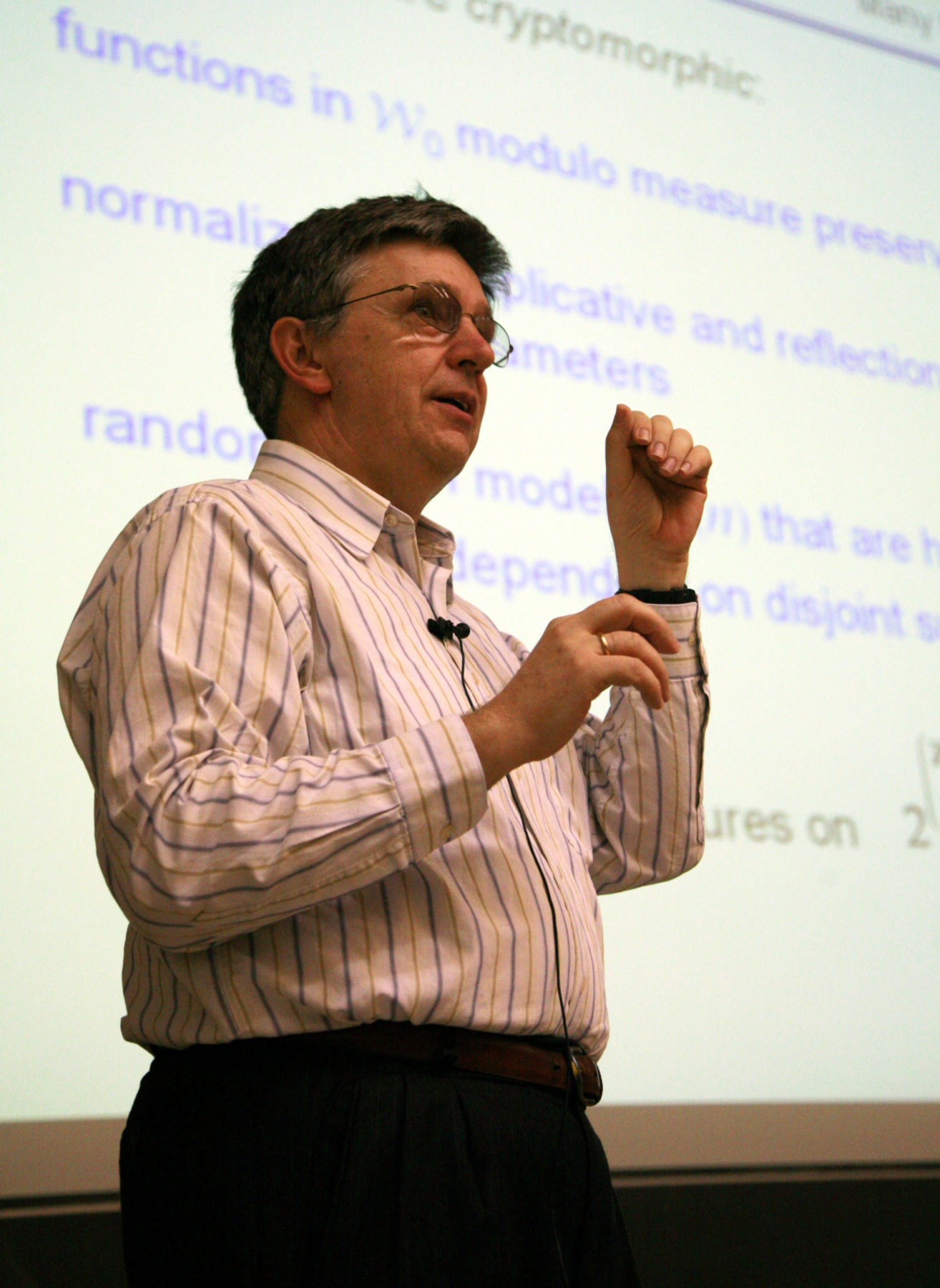
Wikimedia Commons
On March 17, former Yale professor and Hungarian mathematician László Lovász was awarded the Abel Prize — a prestigious award in mathematics that is considered to be the equivalent of the Nobel Prize.
Lovász received the Abel Prize alongside math professor Avi Wigderson of the Institute for Advanced Study, and the two will split the 7.5 million Norwegian kroner — or approximately $880,000. The Abel Prize, which was established in 2002 by the Norwegian government and modeled after the Nobel Prize, takes its name from the Norwegian mathematician Niels Henrik Abel.
After serving as a professor in Hungary for several years, Lovász joined Yale faculty in 1993 as the William K. Lanman professor of computer science and mathematics before leaving in 1999 to take a position at Microsoft.
“The idea is that it’s sort of the mathematical equivalent of the Nobel Prize, and a number of very prominent mathematicians have gotten it,” said Roger Howe, professor emeritus of mathematics, noting that last year’s prize went to a current Yale faculty member, math professor Gregory Margulis. He added that although Lovász is no longer at Yale, “he was here for a while and we’re very happy about that.”
Lovász did not reply to multiple requests for comment from the News.
The Norwegian Academy of Science and Letters announced in a press release that this year’s winners were awarded the prize “for their foundational contributions to theoretical computer science and discrete mathematics, and their leading role in shaping them into central fields of modern mathematics.”
Every year, the Norwegian Academy of Science and Letters selects Abel laureates based on the recommendation of the Abel Committee and honors these mathematicians in an annual ceremony.
Lovász and Margulis are both set to be honored at this year’s ceremony. Margulis was supposed to be recognized at last year’s event, but it was canceled because of concerns about the COVID-19. According to the press release, the details of the 2021 ceremony remain uncertain due to the pandemic and will be announced at a later date.
“Lovász is one of the people who helped establish the field of combinatorics as a pillar of mathematics,” said Andrew Beveridge GRD ’97, who was a doctoral student under Lovász at Yale. “It’s a field that really has grown in the 20th century to become something of its own.”
Beveridge went on to explain that the growing importance of combinatorics, an area of mathematics that deals with counting, has come with the rise of computers. Because computers rely on discrete systems, there are many new applications for a field that was previously underdeveloped.
Howe also discussed Lovász’s influence in combinatorics, a field that Hungarian mathematicians are particularly known for. One such mathematician was Paul Erdös, who published around 1,500 papers and inspired Lovász to work in combinatorics.
“Lovász is in some sense Erdös’ replacement in the current generation for leadership of combinatorics,” Howe said.
Among Lovász’s doctoral students at Yale was Van Vu GRD ’98, who joined the Yale faculty in 2011 and is currently a professor of mathematics and statistics and data science. In an email to the News, Vu remarked that Lovász has made several important contributions to combinatorics and computer science and that “some of the most frequently used tools in these areas, such as the [Lovász] Local Lemma and LLL algorithm, bear his name.”
Perhaps his best-known work, the Lovász Local Lemma is a tool used in the probabilistic method to prove the existence of rare graphs, according to László Lipták GRD ’99, another doctoral student under Lovász. Lipták also explained that the LLL algorithm, which approximates points in lattices, is another significant work by Lovász. According to the Abel prize press release, the LLL algorithm has numerous applications in cryptography, number theory and mobile computing.
In an email to the News, Fang Chen GRD ’00, another former doctoral student under Lovász, recalled him encouraging her to study combinatorics, even funding her to attend research workshops. In her current work teaching at Emory University, Chen says she is inspired by Lovász’s ability to be both a talented mathematician and an excellent communicator.
“Whenever I hear that someone is too good of a researcher to be an effective teacher, I shake my head and tell them that they are so wrong,” Chen wrote. “Prof. Lovász, the most brilliant mathematician that I have known happens to be one of the best teachers that I have seen.”
Lipták also shared his pleasant experiences working under Lovász with the News. He recalled that Lovász “treated his students almost like family” and “frequently invited us to his house for holiday meals (I especially liked the Thanksgiving dinners) and mathematical discussions.”
Howe got to know Lovász while they were both faculty members at the University and also had a very positive experience working with him on a paper.
“Some mathematicians are very pushy or competitive and so forth, and he was not like that,” Howe said. “He was very easy to work with and a very pleasant collaborator.”
Lovász is currently a professor at Eötvös Loránd University.
Aislinn Kinsella | aislinn.kinsella@yale.edu







